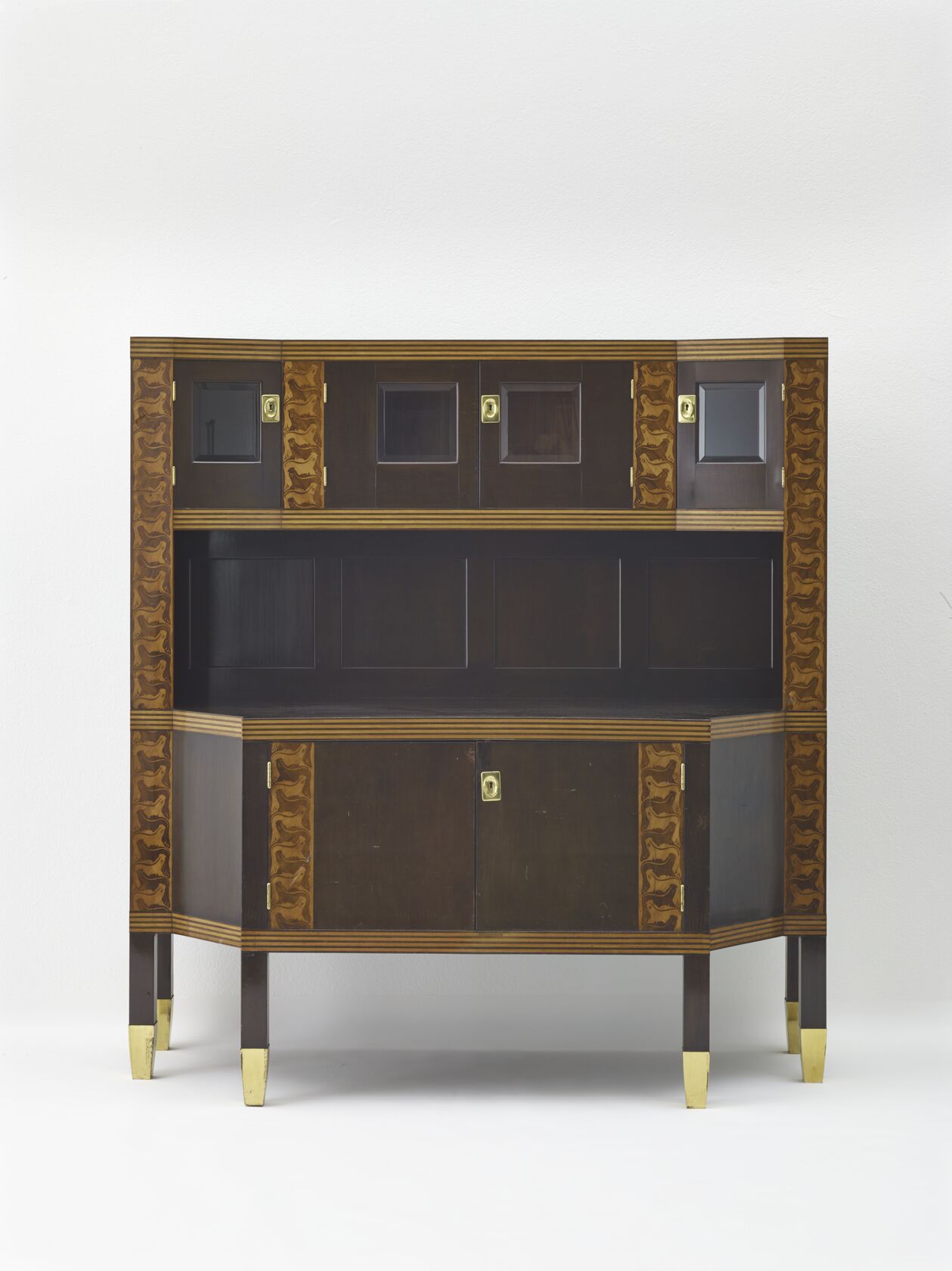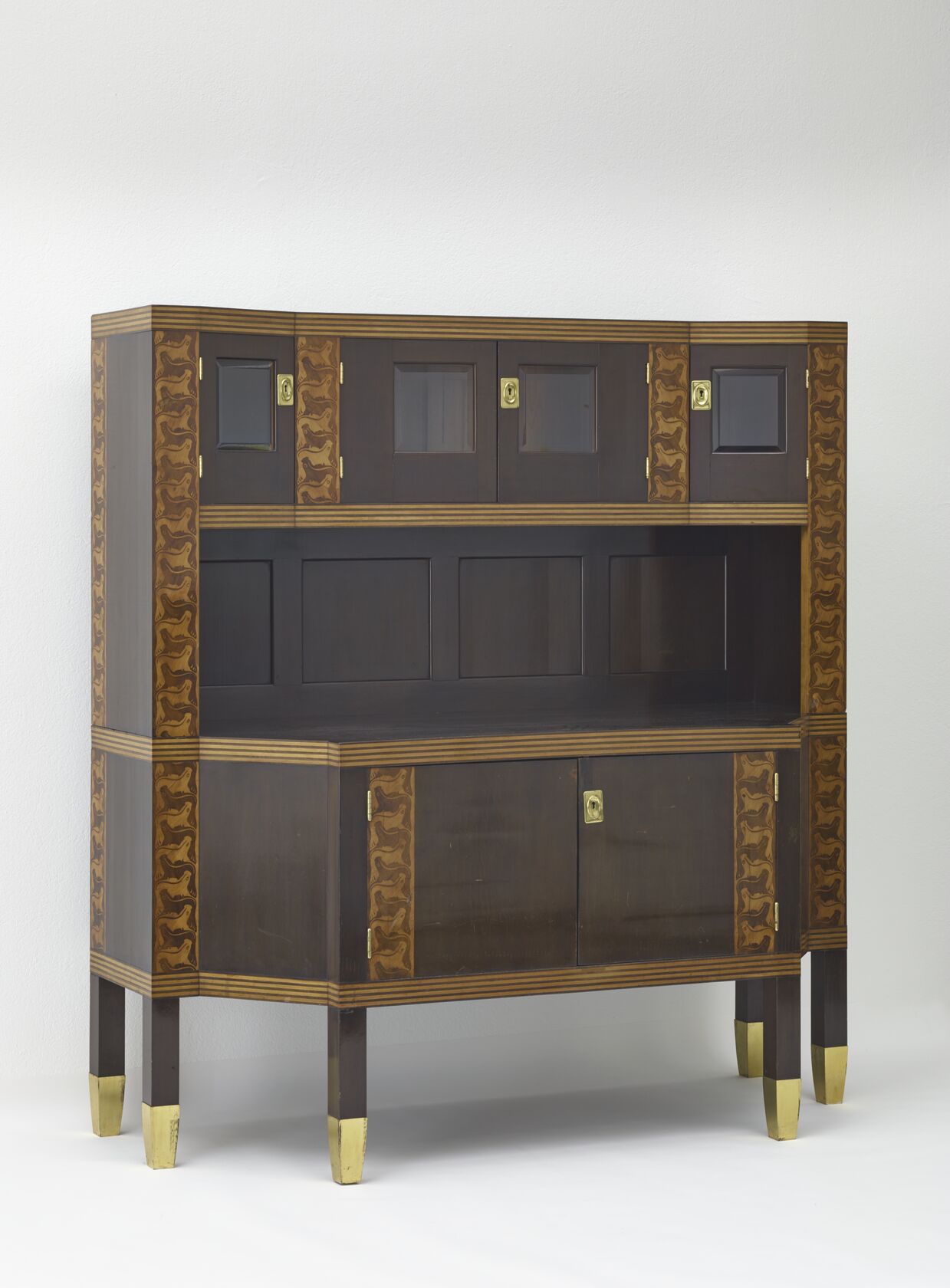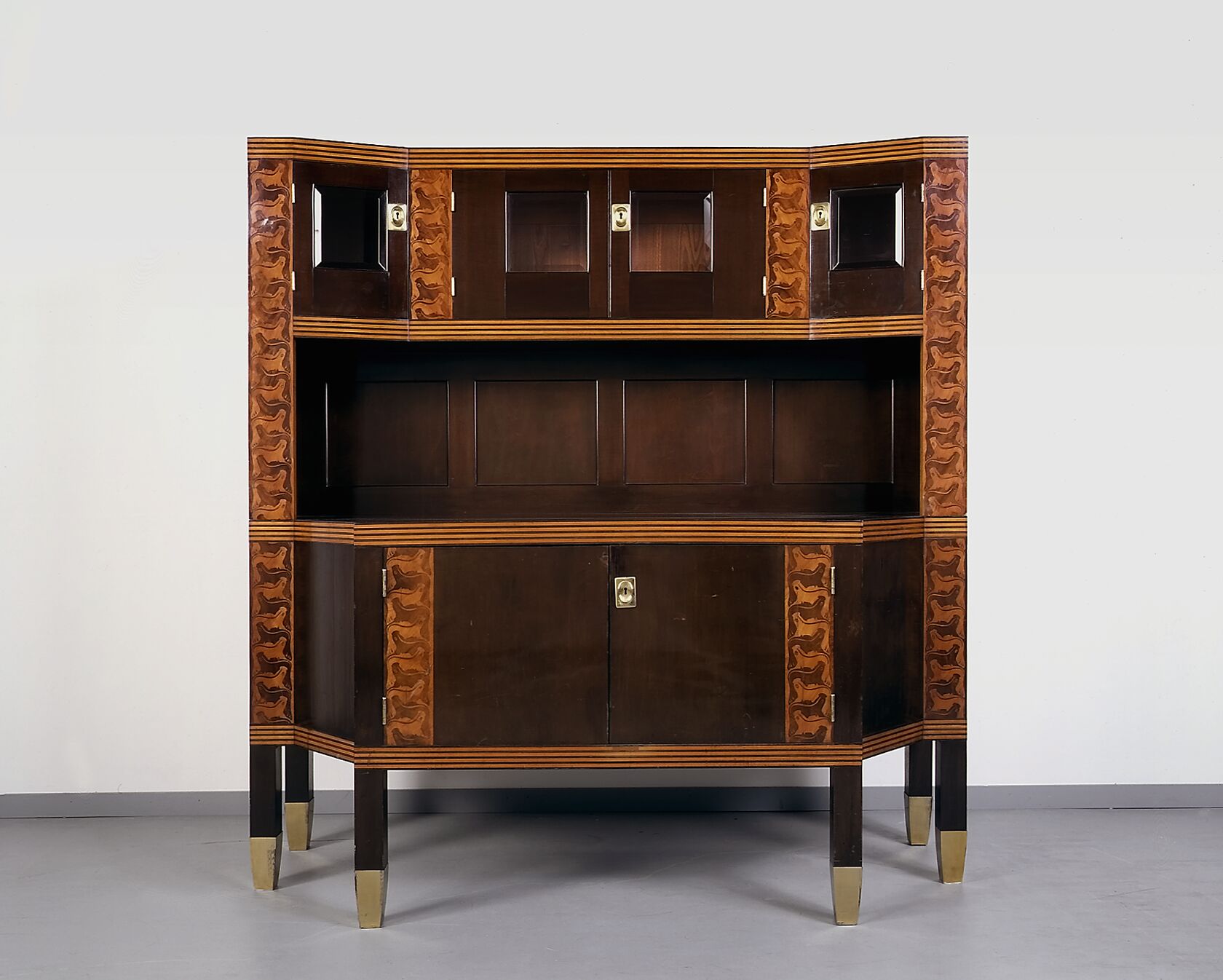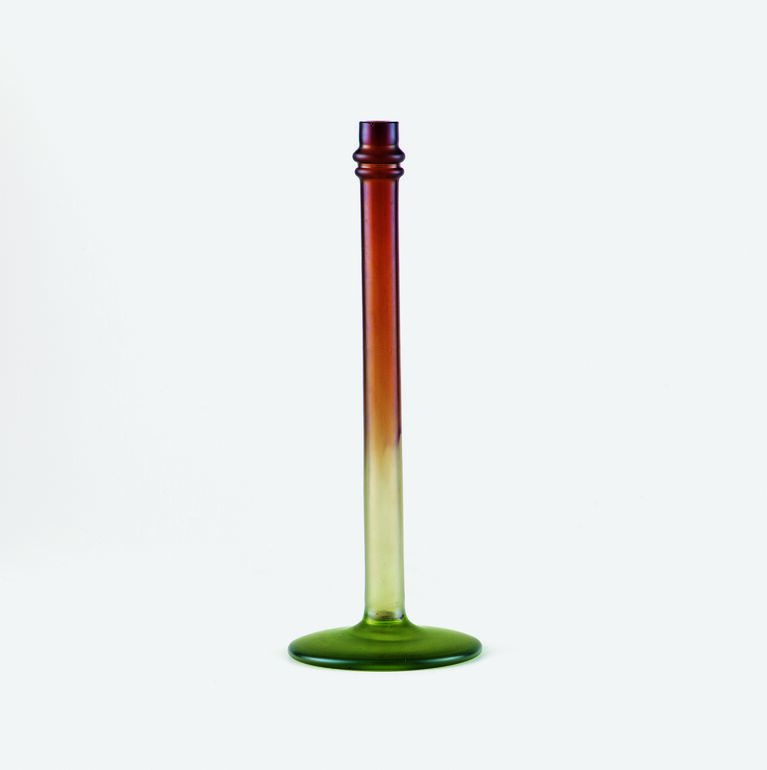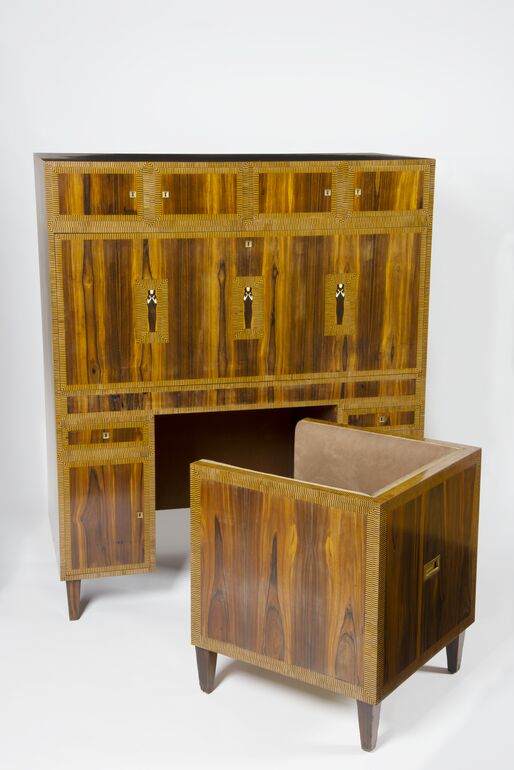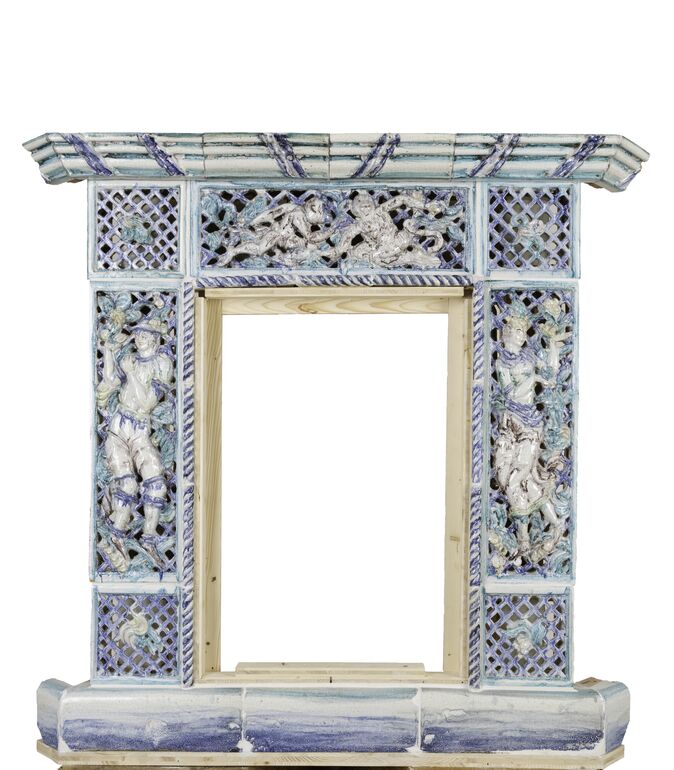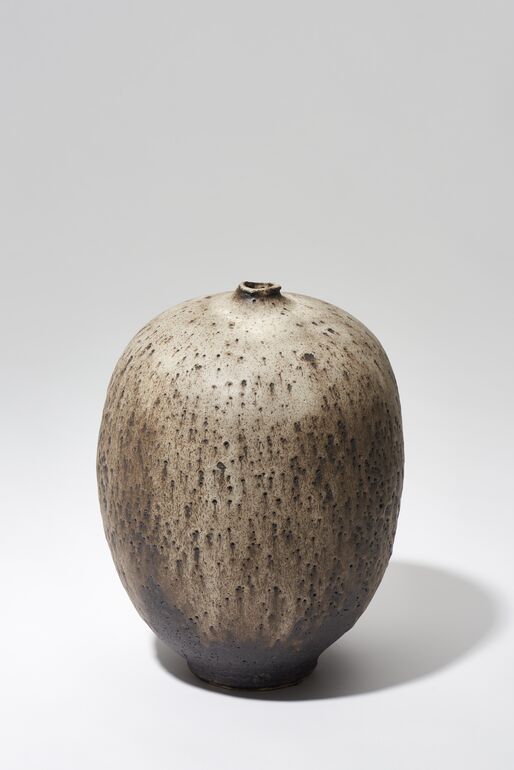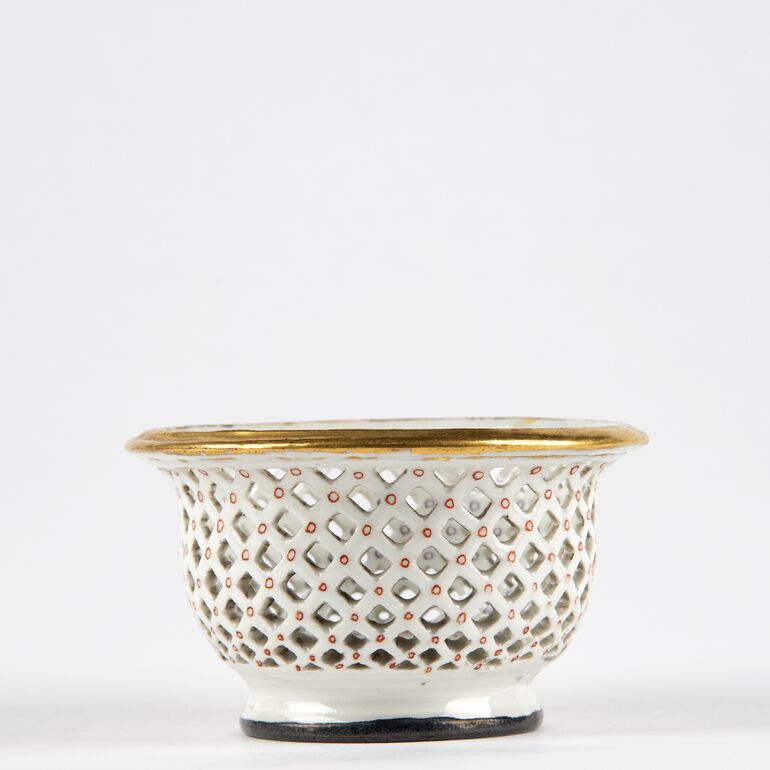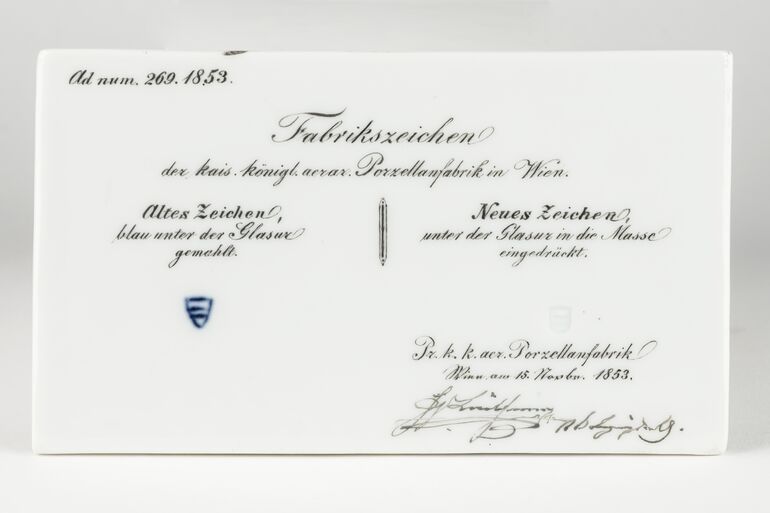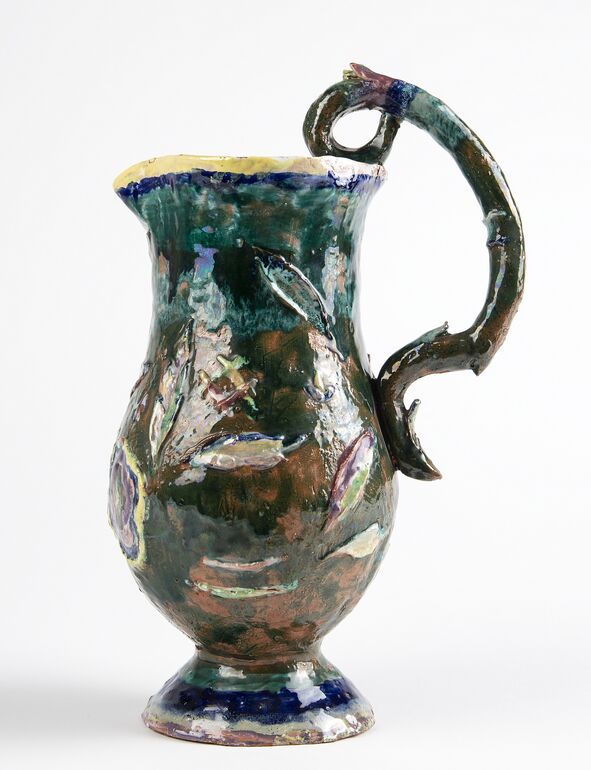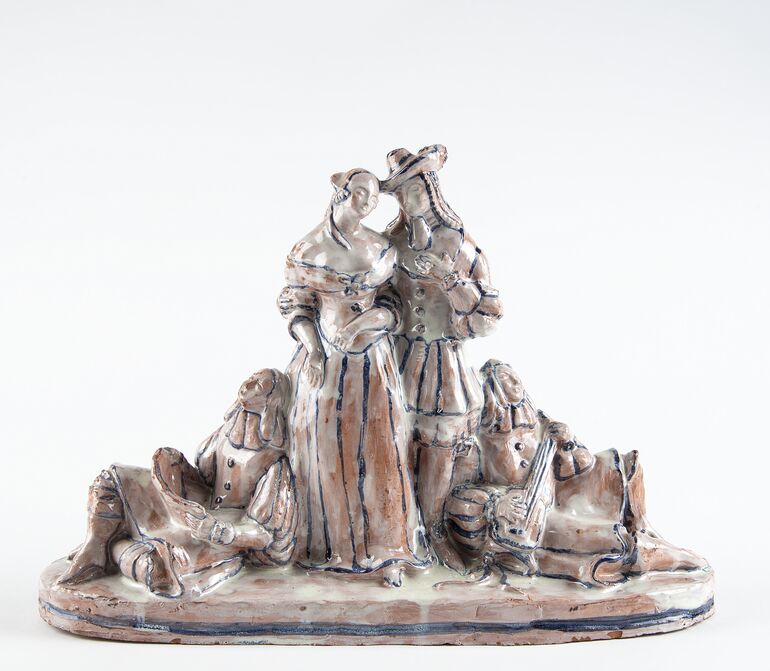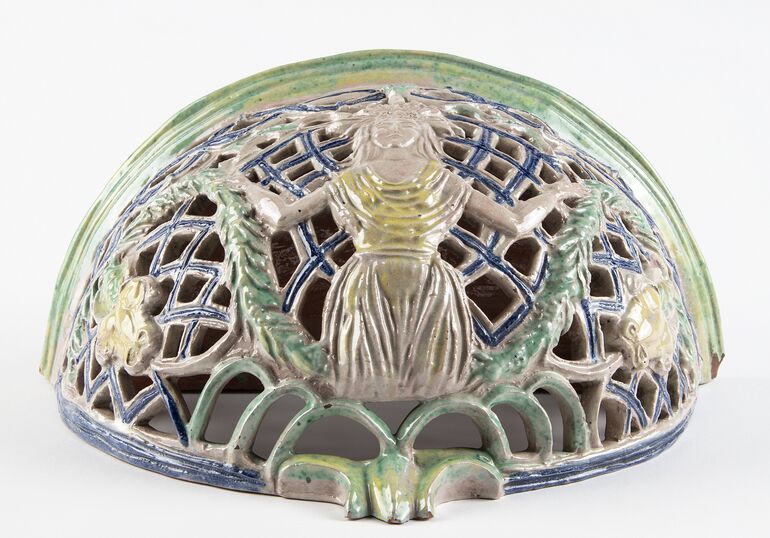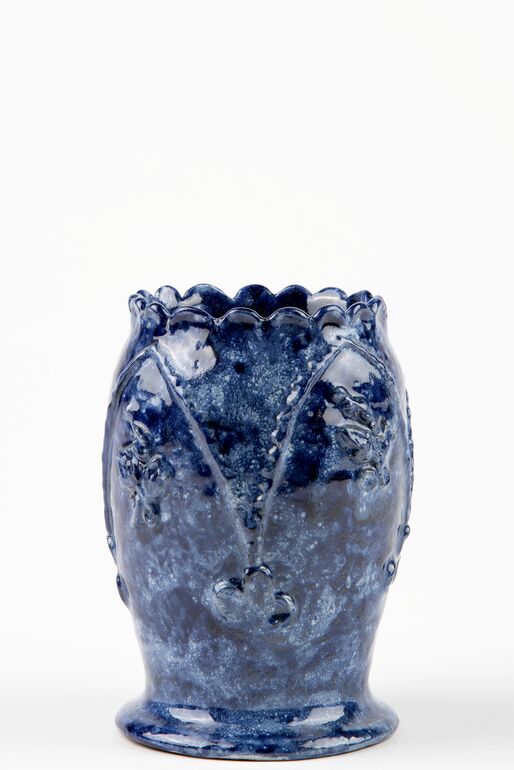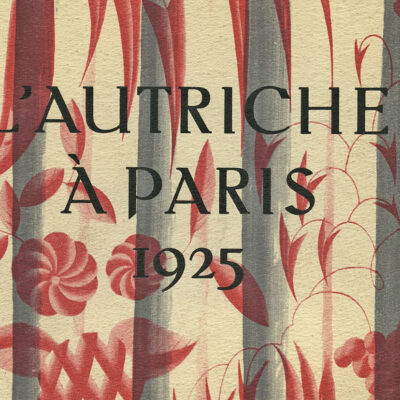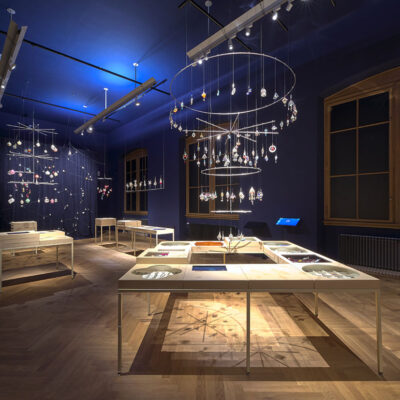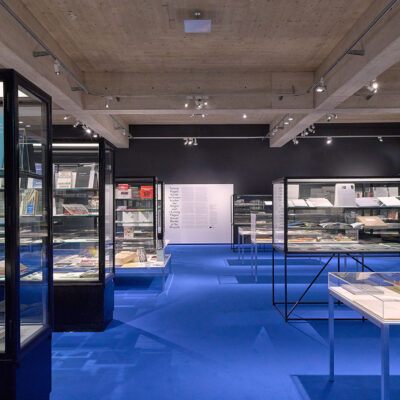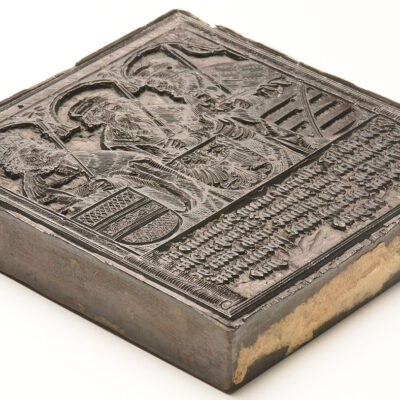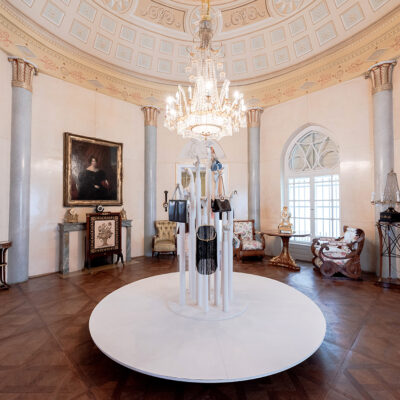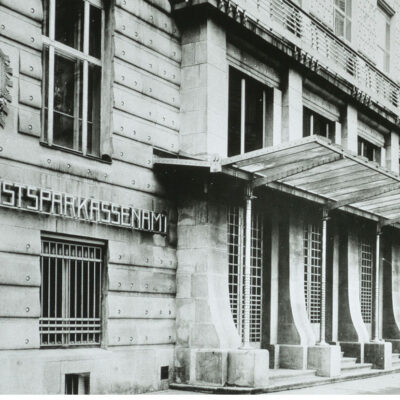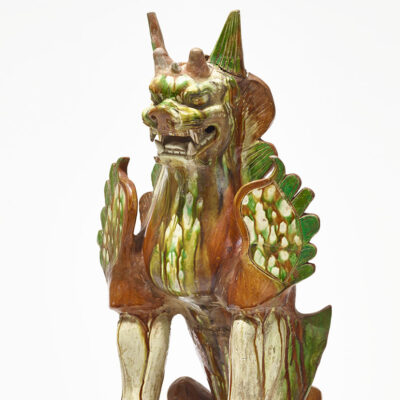1/3
題名
- The Rich Haul (original-language title)
- präsentiert auf der VIII. Secessionsausstellung 1900 (subtitle)
Collection
Production
- デザイン: Koloman Moser, ウイーン, 1900
- 作者: Portois & Fix, ウイーン, 1900
時代 | 王朝 | 様式
材料 | 手法
-
Ahornholz,
-
furniert,
-
dunkelbraun gebeizt und politiert; Fischmarketerie aus Buchsbaum- und Pyramiden-Mahagoniholz; Horizontalmarketerie aus gebeizten Ahorn- und naturbelassenen Buchsbaumholz; Ulmenholz,
-
gebeizt und poliert; Messing; Glas,
-
facettiert
Measurements
- 縦幅: 180 センチ
- 横幅: 168 センチ
- Tiefe: 67 センチ
作品番号
- H 1700
Acquisition
- donation , 1901
Department
- Furniture and Woodwork Collection
Associated Objects
- photograph, Buffet “Der reiche Fischzug” [The Rich Haul]
- photograph, Photograph of a buffet cabinet after a design by Koloman Moser: The Rich Haul
- picture frame, Der reiche Fischzug
- wallpaper design, Entwurf eines Musters für Stoff oder Tapete: "Der reiche Fischzug"
- wallpaper design, Entwurf eines Musters für Stoff oder Tapete: "Der reiche Fischzug"
- デザイン, Flächenmusterentwurf zu "Der reiche Fischzug"
- portfolio, Goldfische Wandbehang [recto]
- fabric swatch, Forellen-Reigen
Inscriptions
- signature: Portois & Fix Wien/6999
Description
-
For the 8th exhibition of the Secession in 1900, which was the first one to do away with the distinction between “fine” and “applied” art, Koloman Moser, who had trained at the Academy in Vienna as a painter, presented his unconventional
furniture piece Der reiche Fischzug [The Rich Haul]. This buffet, regarded as a groundbreaking and influential example of a specifically Viennese style of furniture, can be understood as a challenge to that period’s established sense of aesthetic form and proportion: by emphasizing not the supporting structure alone, Moser produced an ambivalent effect that made it difficult for his contemporaries to differentiate between support and load, space and surface. At the same time, the geometric nature of this construction’s basic forms and the use of surface ornamentation—much like in many later pieces of Viennese furniture—gave rise to a harmony of sorts that was both new and full of tension.
(Hackenschmidt, Sebastian)
-
buffet hutch, The Rich Haul, Koloman Moser, MAK Inv.nr. H 1700
Last update
- 29.12.2025
